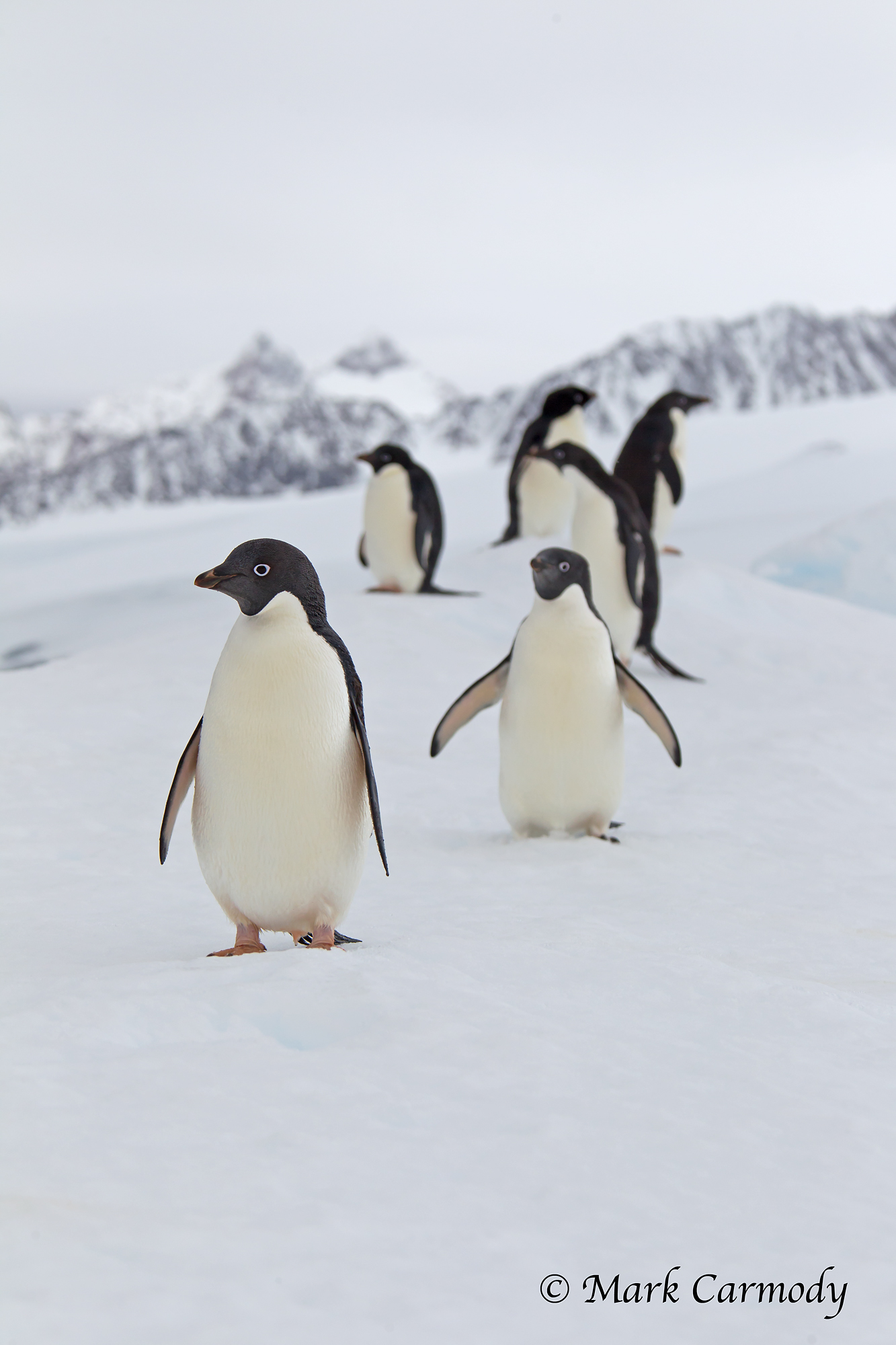New research as found that Adelie Penguins greatly prefer reduced sea ice conditions, making it a rare winner from the effects of climatic warming in Antarctica.
In stark contrast to the Arctic, Antarctica has experienced some increases in the extent of its sea ice in recent decades. However, as global temperatures continue to rise, this trend is expected to rapidly reverse and have significant consequences for the continent's ecosystems.
However, as the study shows, not all these consequences may be negative. It is well known among biologists that Adelie Penguins tend to enjoy population increases during years of sparse sea ice, yet suffer major breeding failures in years where sea ice extent is at its greatest. Until now, it wasn't known why exactly this happened.

More sea ice means Adelie Penguins have to invest more effort in walking greater distances (Mark Carmody).
Researchers tagged 175 penguins GPS devices, accelerometers and video cameras across four seasons with different sea ice conditions, allowing them to track penguins on their trips, categorize walking, swimming and resting behaviour, and estimate the number of prey captured during dives.
"It turns out that these penguins are happier with less sea ice," said lead researcher Yuuki Watanabe at the National Institute of Polar Research. "This may seem counter-intuitive, but the underlying mechanism is actually quite simple."
Watanabe explained that in ice-free conditions, penguins are able travel more by swimming than by walking. "For penguins, swimming is a whopping four times faster than walking. They may be sleek in the water but are pretty slow waddlers overland," he added.
In seasons with heavy sea ice, the penguins have to walka long way to find cracks in the ice in order to access the waters where they hunt, taking sometimes quite lengthy rests along the way.
But when there is less sea ice, penguins can dive much more freely, often entering the water very close to their colonies. This is more energy- and time-efficient and it expands their foraging range. Most importantly, this likely reduces competition with other penguins for prey and allows them to catch more krill. Less sea ice also means more sunlight entering the water, leading to larger blooms of the plankton, upon which krill feed.
However, all this only happens for those penguins that live on the main, 'continental' section of Antarctica. The opposite happens to those that breed on the Antarctic Peninsula or on surrounding islands.
The researchers have a few hypotheses as to why this might be the case, but further research is now required.
Reference
Watanabe, Y, Ito, K, Kokubun, N & Takahashi, A. 2020. Foraging behavior links sea ice to breeding success in Antarctic penguins. Science Advances vol 6, no 26. DOI: 10.1126/sciadv.aba4828


